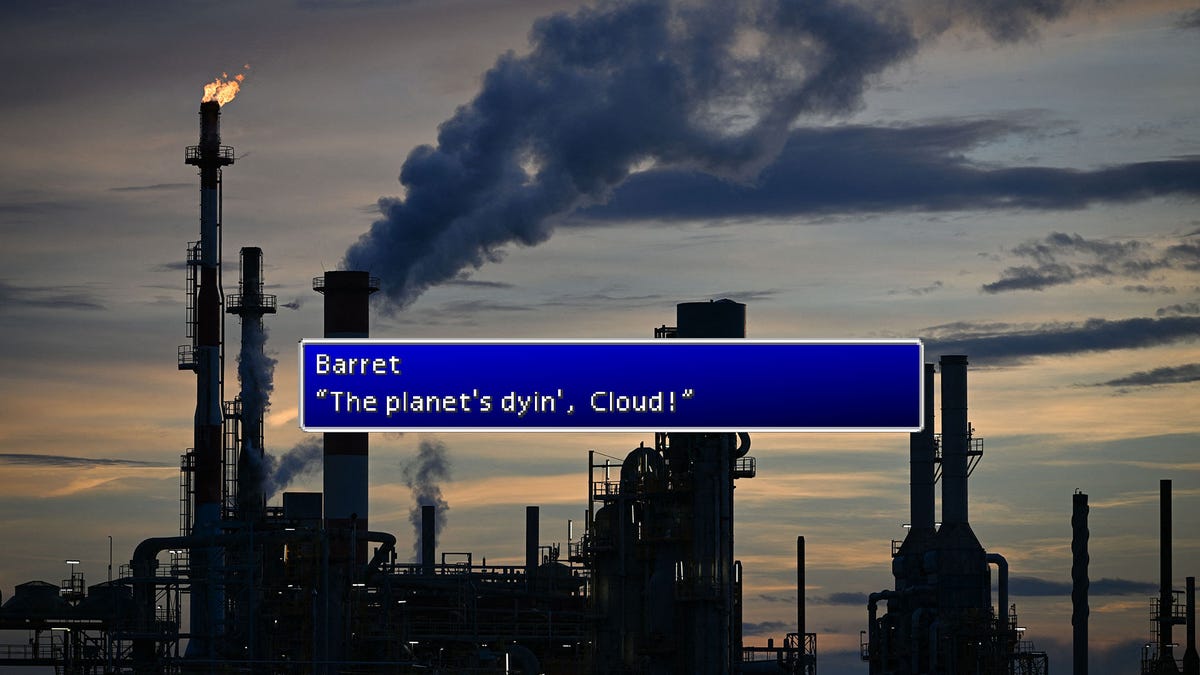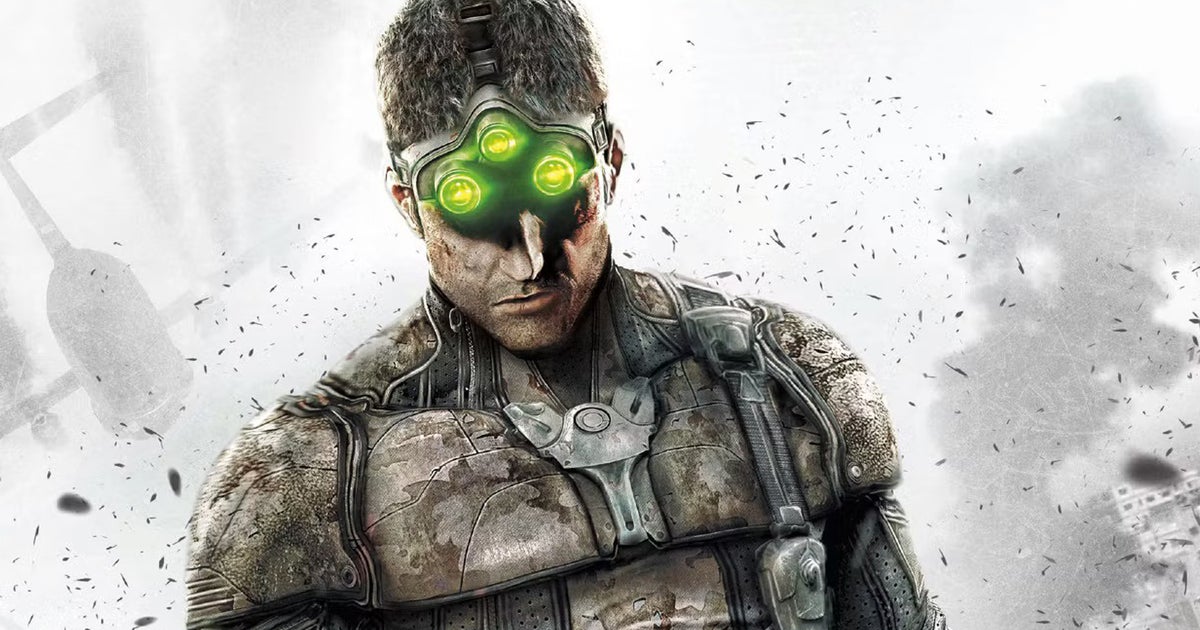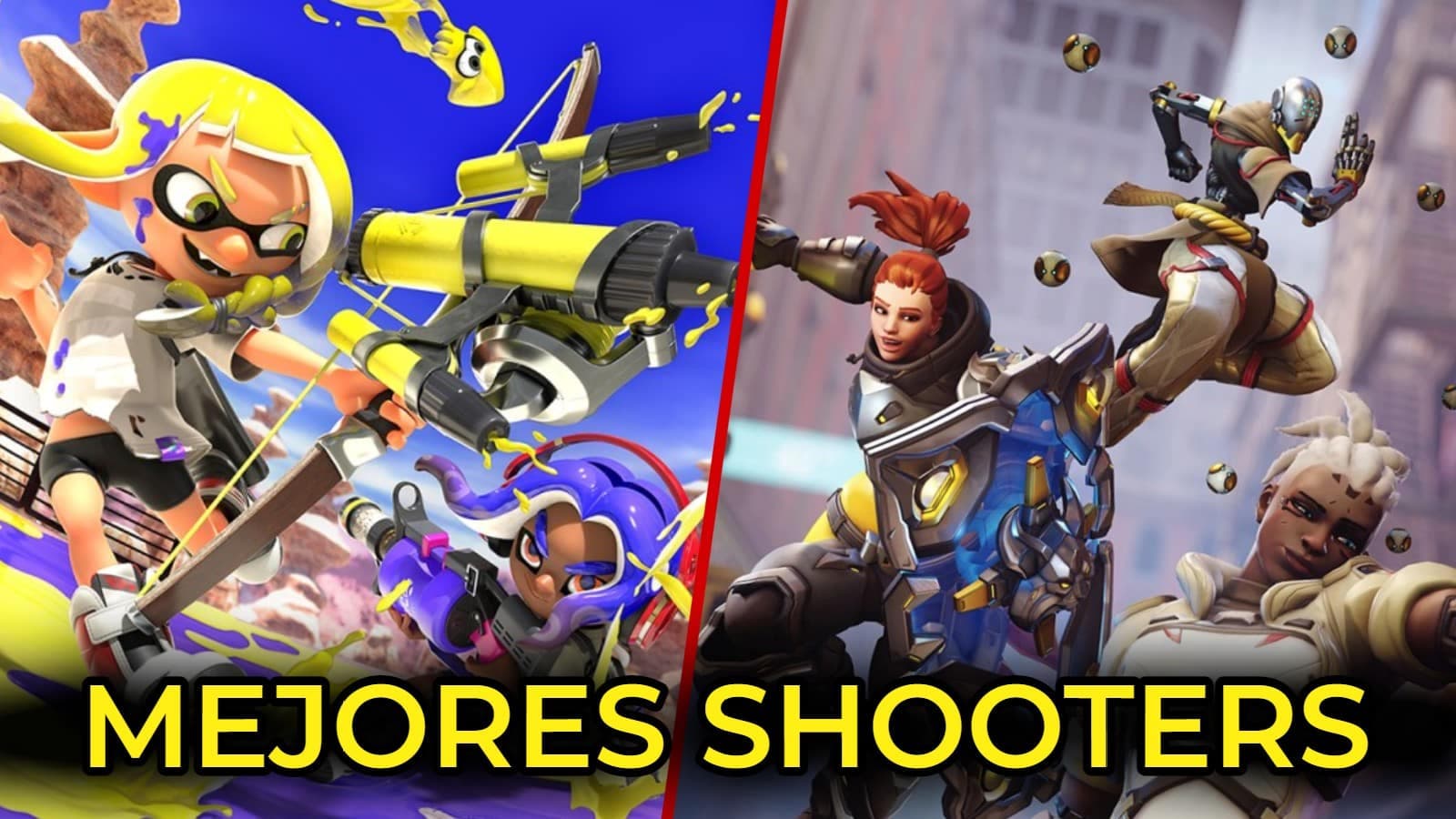AfterClimate, a research and advisory firm “with a mission to decarbonize the gaming industry,” have this week published the results their Game Industry Net Zero 2022 Snapshot.” It is a report that takes an in-depth look at how most of the world’s largest video game companies are responding to the impending climate crisis. The good news is that some do a lot of work! The bad news is that some do nothing, while others don’t even publish their numbers.
The report was written by Dr. Written by Ben Abraham of AfterClimate, the author of the Book, Post-Climate Change Digital Games. It basically takes a set of “net-zero targets, environmental, social and governance (ESG) disclosures and other sustainability programs and achievements” published by video game companies — and tech giants with an interest in video games — and evaluates them. You are assigned into one of four categories depending on how committed they are to limit global warming to 1.5 degrees Celsius above the pre-industrial level.
The first group to do the most work is called “Ambitious“. These are described in the report as follows:
Each of these companies (or its parent company) has set rigorous targets and provided compelling evidence that it has taken steps to actively reduce emissions. There is still work to be done to achieve these goals, but they are moving in the right direction.
These industry leaders set the pace and show what ambition and action is possible in the gaming industry.
Some of the companies that deserve this praise are Microsoft, Ubisoft, Apple, Google, The Embracer Group, Tencent, and Riot.
After that comes the “baseline” group, described as:
This group of companies is already acting, but without the same speed and urgency as those in the ambitious Group. This is the minimum acceptable standard and can still be improved.
Companies in this class include Sony, Activision Blizzard, Konami, Sega, and Bandai Namco. As you can probably guess from the fact that we’re already at “minimum acceptable standard” and only halfway there, what follows isn’t fun to read.
The third group are companies thatcatch up“.
These companies are increasingly aware of their environmental footprint, some are even taking tentative steps to reduce it, but have yet to set a date for companies to be net-zero.
With determined leadership and careful planning, these companies could quickly skip the baseline and join the ambitious group.
Companies lagging behind are Nintendo, EA, Take-Two, Zynga, and NetEase. The fourth and last group are in the “non-compliance” Buckets, the bottom tier and companies that desperately need to do better
These are the gaming industry underperformers. These companies are exposing themselves to significant risks (physical and transitional) from climate impacts, threatening their brand integrity and social license to operate in an increasingly environmentally conscious world.
Disappointingly, some of these companies appear not to have considered the environmental impact of their operations at all. There’s simply no excuse for neglecting ESG disclosures in 2022. Stakeholders, investors and even the players themselves are already beginning to expect more.
Companies receiving this failing grade include Square Enix (whose ESG no mention of the evicinity), Roblox, and Nexon. It’s important to note when naming, shaming (and praising!) all of these people, that two of the biggest video game players out there—Valve and Epic—couldn’t even be graded as they are releasing absolutely no data or information on their climate impacts, nor have they made any commitments to address them in the future.
It is this bottom group (and the two main absentees) that are by far the greatest concern because there is such a gulf between their actions (or lack thereof) and those above them. “My approach was always: ‘what has to happen?’ Not ‘what is possible?’ because I think the situation is so urgent that we almost have to work backwards from what needs to happen –what immediate, deep decarbonization is,” dr Abraham tells my city. He continues
The groupings themselves somehow grew organically from the net zero dates each set, and the difference between the top three groups (Aspiring, Baseline, and Catch Up) is primarily their net zero goals. The bigger gap is between companies in the non-compliance group, as most of them haven’t even started thinking about ESG. Taking a corporate culture with you on the journey towards net zero and sustainability is one mammoth task, and it cannot be accomplished overnight. It requires building buy-in from the top to the bottom of the organization.
dr Abraham believes the margins are so close that many of the companies in the second and third groups could lead by next year, including Sony, which just passed its net-zero emissions date brought forward a decade. That’s a lot harder to achieve for a company like Sony — which also makes millions of physical products — than some of the software-only gaming companies mentioned elsewhere in the report.

It is important to note that the content of this report is only a general, overarching picture that is already out of date (as it is based on 2021 numbers). and failing to take into account the advances some companies have made since then.
An example of this is changes Microsoft and Nintendo have made to their supply chain that were previously outside the bounds of most companies’ environmental commitments. “Some good news can be found in the agreements that large companies sign with each supplier (usually a slightly smaller company) that works for them.” says dr Abraham. “Think of Foxconn making iPhones, or game developers making (or working on) games for another developer –huge amounts of work in triple-A gamedev space is done on a contract basis.”
“For example, you could get 3D environmental art made by a team in China,” explains Abraham. “So these supply chain policies set the expectations for standards of conduct for these companies –Usually they cover basics like ‘don’t break the law‘ ‘treat employees fairly‘ However, we are increasingly seeing that they are also being used to get these companies to measure and act on their greenhouse gas emissions.”
The researcher continues: “So Sony has one that’s doing that now, Nintendo has one with an environmental focus (probably for the companies that make the Switch), Microsoft has a really strong one that I just heard about that doesn’t allow companies to do purchased offsets to use net reach zero. All good stuff.”
dr Abraham says the exciting news is that such actions can have a “leaky” impact on the rest of the industry. “For example, Sony’s Supplier Code of Conduct requires that the companies Sony works with also require their suppliers to agree to and abide by Sony’s Supply Chain Code of Conduct. So you can imagine how far something like this could spread. Who is more than two in the gaming industry Degree of separation from Sony? Not many, I would imagine! I think that’s the area to watch for in the coming year, and this is where game developers are likely to get caught. Because if you want to sell games on PS or Xbox, you have to be CO2 neutral at some point, otherwise there can definitely be consequences.”
While there is much to be commended here, especially from larger companies like Microsoft, I was also curious about the possibility of a corporate setback, since a report like this one – which specifically highlights an individual’s achievement on a specific, vitally important issue – could potentially undermine the reputation of a company.
“I think there is some uncertainty around these issues among some of the companies included in the snapshot, and not just those that are treating ESG like a joke right now,” says dr Abraham. He adds
The explanation I’ve heard is that a lot of companies are just not sure what to do – they’re all in a learning process and on this journey to ground zero to find out what it really means. I try to be fair but firm in my assessments, so I expect not everyone will agree with them or say I don’t consider everything I could, but at the end of the day, my allegiance is to the planet first. I say it again and again because it’s true: we have to work for what is necessary, not just for what is possible. I hope the snapshot tells the industry some things they didn’t know before, encourages those who need encouragement, and points out the laggards who may need a reminder that corporate sustainability is not an option on a fast-moving planet Extra is heating. Investors, gaming industry professionals, gamers and the press will demand more. Ignoring this stuff has real consequences.
To this end, AfterClimate encourages more employees and companies to help shape next year’s report. And if you want to read this year’s report, it can be found herealong with links to a table containing the full data set used to generate it.








